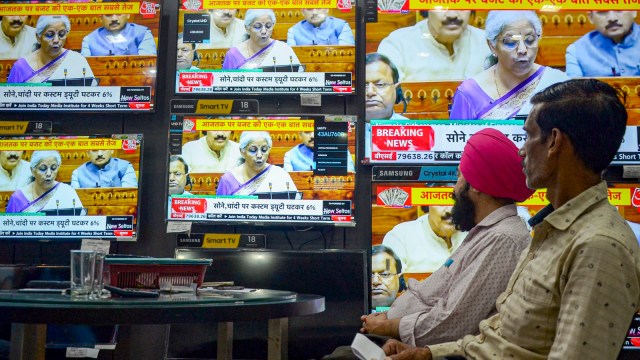Following outrage and concerns from certain quarters over the Budget proposal to remove indexation benefits on long-term capital gains (LTCG), the government Tuesday decided to offer taxpayers a choice to pay 20 per cent LTCG tax with indexation benefit on sale of property acquired before July 23, 2024.

These amendments are being seen as a major rollback of the LTCG-related announcements pertaining to the real estate sector in the Budget. While the government had defended the new LTCG tax regime saying indexation benefit back for property bought before Budget that the removal of indexation was more than made up for by the lower tax rate of 12.5 per cent in a vast majority of transactions, the proposals had led to a backlash with calls for relief coming from various sections, including real estate investors and property owners.
Story continues below this ad
The amendment, however, makes it clear that for purchases of property after the cut-off date of July 23, 2024, only the new regime with LTCG tax at the rate of 12.5 per cent without indexation will be applicable.
Indexation is the process of adjusting the original purchase price of an asset or investment; it allows a taxpayer to neutralise the impact of inflation while paying tax on capital gains. It involves revising upwards the cost of acquisition of an asset based on the inflation over the period for which it was held.
Without indexation, particularly in cases where the asset was held for an extended period, the gains may appear extremely high, but they may not paint a realistic picture.
With these amendments, effectively all properties purchased before the Budget presentation date — July 23 — have been grandfathered. In the original proposal, there was no grandfathering for properties bought after April 1, 2001. For properties purchased before that date, the fair market value as on April 1, 2001 was to be taken as the cost of acquisition. Put simply, grandfathering is a provision that allows an old rule or law to be applicable to some or all situations up to a certain date, while the new rule or law is applicable to all situations after that date.
Story continues below this ad
It may be noted that the amendments provide for a choice between the old and the new LTCG tax regimes only for properties acquired before July 23.
“In the case of transfer of a long-term capital asset, being land or building or both, by an individual or HUF (Hindu Undivided Family), which is acquired before the 23rd day of July, 2024, the taxpayer can compute his taxes under the new scheme (at the rate of 12.5 per cent without indexation) and old scheme (at the rate of 20 per cent with indexation) and pay such tax which is lower of the two,” a source said, explaining the key amendment.
Notably, the amendments have brought back the indexation benefit for immovable property only and not other unlisted assets like gold. For unlisted securities or shares, the capital gains would be taxed at 10 per cent for transfers before July 23 and 12.5 per cent on or after July 23.
The biggest fear around the Budget proposal on LTCG taxations was that the changes would result in a jump in LTCG tax liability for those looking to sell property. Sensing the anxiety, the Finance Ministry and the Income Tax Department issued multiple clarifications in a bid to assure taxpayers. According to the government, the new LTCG tax regime, even without the benefit of indexation, would be beneficial in a vast majority of cases, as nominal real estate returns are generally in the region of 12-16 per cent per annum, much higher than inflation.
Only where returns are low—less than about 9-11 per cent per annum—the earlier tax rate would be beneficial, the Income Tax Department had said, adding that such low returns in real estate are “unrealistic and rare”. The government had also clarified that rollover benefits had not been touched, which means that if capital gains are invested in Section 54EC bonds or used for buying or constructing residential real estate up to specified limits, LTCG would continue to be exempt from tax.
Story continues below this ad
Notwithstanding the government’s claims that the new simplified LTCG tax regime shall be beneficial in a majority of cases, concerns persisted. The other major criticism was the absence of grandfathering for purchases made over the past 24 years. There was a clamour for all properties purchased before the Budget presentation date to be grandfathered, and the government has now given into that demand with the amendments to the Finance Bill.
There have also been apprehensions that the new regime without the indexation benefit is likely to result in higher frequency of secondary market real estate sales as people would not want to hold on to assets beyond three to five years. Another concern that has been flagged by some industry watchers and even Opposition lawmakers is that the new regime may incentivise use of more cash in property transactions, as sellers will be tempted to deflate the actual transaction value on paper in order to pay less tax.
Among the other amendments to the Finance Bill, the Finance Ministry has also amended the definition of undisclosed income for block assessments. Yogesh Kale, Executive Director, Nangia Andersen LLP said, “For the purpose of block assessment provisions, the definition of “undisclosed income” is proposed to be amended to include incorrect claim of exemption within its purview. Originally, the definition included incorrect claims only of expense, deduction or allowance, among other things.”


































